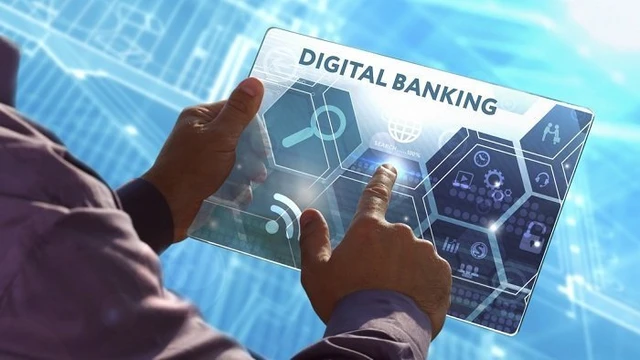
The latest and most innovative changes to occur in the future will be a move towards digital banks, which will provide low cost and short time methods in banking services. They will also provide fair competition than traditional banks do at present. Digital banks will also be the driving force behind new innovations throughout the financial system.
Digital banking in future
Some countries have legalized the concept of digital banks. These can be briefly defined as organizations licensed to provide banking products and services, such as receiving deposits, giving loans, and investing through digital platforms, all in one place and under one umbrella. The most important difference between digital banks and traditional banks is that the same financial products and services that are provided by traditional banks through traditional channels such as agents, consultants, tellers, or switchboards, will now operate entirely on one digital platform.
The digital bank has a role to play in bringing financial services to areas where customers do not have access to traditional banks due to geographical distances, with the internet providing a wider connectivity. The digital bank will promote the growth of the banking industry in the face of new technological advances and the challenging emergence of fintech companies.
The digital economy has been recognized by Vietnam as a core factor to bringing both opportunities and challenges to future economic development. Vietnam is determined to turn the country into a new digital economy and future growth engine. The digital bank can be understood as an intersection of fintech and a bank. From an operational point of view, the digital bank can be considered a fintech that provides banking services and products. From a product point of view, the digital bank operates on a digital platform. Therefore, the digital bank can be the result of an expansion of a fintech or an existing bank, or it can also appear to be entirely independent.
Fintech services
The digital bank will add fintech products and services that can grow from the traditional banks that dominate the global banking industry with their huge assets and vast customer base. The digital bank model comes from the expansion of fintech, in other words, fintech is allowed to provide banking services and products. In most countries, fintech appeared first in the financial sector such as in payment transactions, money transfers, and e-wallet services. But as more and more fintech appears, it is forced to redirect their business to other areas with more potential in providing banking services, mainly for those who have difficulty accessing traditional banking services.
The digital bank is built by fintech with technological advantages and highly qualified staff with experience in operating digital financial services. In the digital environment, fintech companies can develop new products on existing technology platforms without spending too much. Fintech companies also have the advantage in the ability to secure customer information, better resistance to cyber-attacks, and increase confidence in safety issues in the eyes of customers.
The biggest difference between the digital bank comes from fintech, which is operating in the technology ecosystem. This is proof of the effectiveness of the network in the digital economy. Fintech does not operate alone or is limited to certain products, but always seeks to increase coverage for most products and services. For instance, Momo wallet provides solutions for money transfer, payment for goods and services, recharging of phone cards, lotteries, charity donations, etc. Integrated banking services will become part of this ecosystem, present in increasing cross-selling of products between components of the ecosystem and bringing mutual convenience to customers when using a single network of applications on the same platform. The digital bank will bring additional solutions to the financial services fintech is providing in order to complete the supply chain of financial and banking products and services from start to finish for customers.
Digital bank activities
Vietnam urgently needs a legal framework for digital banking activities to develop the digital banking model in the country. It could start with the granting of a digital banking license to the sandbox testing mechanism to get initial results for practical implementation.
Amended law for the State Bank of Vietnam and the Credit Institutions, clearly stipulates banking activities in cyberspace under the management of the State Bank of Vietnam, the services that Credit Institutions are allowed to perform from time to time, and a monitoring mechanism to ensure system safety with transactions on digital platforms.
By amending and supplementing several articles and provisions on lending activities by electronic means will create a premise for completely digital-based lending activities and related legal procedures. This will also issue regulations on the protection of personal data, and create conditions for state management agencies to monitor access, processing, and storage of personal information for digital banking operations.
In addition, Vietnam needs to develop rules for sharing customer data and to identify data that can be shared, data that cannot be shared, and data that needs customer consent before sharing, so as to move to Open Banking in the long term.
Vietnam also needs to accelerate the completion of the national database on population and at the same time issue a mechanism for banks, organizations, and businesses to share and access data and develop user ecosystems. This will serve as a basis for developing electronic identification for citizens and move towards online identification on decentralization of access rights according to state management functions. In order to gradually digitize electronic transactions Vietnam must build the most comprehensive national database on its current population.




















